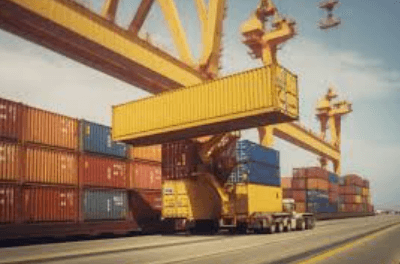The logistics of transporting heavy and large cargo present unique challenges that require careful consideration of various freight shipping services. With options ranging from ocean freight to air freight and intermodal solutions, businesses must evaluate their specific needs against factors such as cost, reliability, and the nature of the cargo. Understanding the nuances of each service can significantly impact operational efficiency and overall costs. As we explore the intricacies of these shipping methods, it becomes evident that strategic planning is essential for successful transport outcomes. What considerations should be prioritized to maximize efficiency?
Types of Freight Shipping Services
In the realm of logistics, understanding the various types of freight shipping services is crucial for effectively transporting heavy cargo.
Air freight offers speed, while ocean freight provides cost efficiency for large shipments.
Rail freight excels in sustainability, and trucking services ensure last-mile delivery.
Intermodal transport combines these methods, enhancing flexibility, while specialized carriers cater to unique cargo needs, optimizing shipping solutions.
Key Factors in Choosing Services
When selecting freight shipping services for heavy cargo, several key factors must be carefully considered to ensure optimal logistics performance.
Service reliability is crucial, as delays can significantly impact operations. Additionally, effective cargo handling is vital to prevent damage during transit.
Assessing the provider’s track record in these areas can help ensure a smooth shipping experience, empowering businesses to operate freely and efficiently.
See also: Freight Services for Heavy and Bulk Cargo Transport
Cost Considerations for Heavy Cargo
Effective logistics performance is not solely dependent on service reliability and cargo handling; cost considerations also play a vital role in selecting freight shipping services for heavy cargo.
Shipping rates are influenced by cargo dimensions, requiring careful evaluation to optimize expenses.
Understanding weight, size, and handling requirements is crucial, as these factors directly impact pricing and ultimately affect overall transport efficiency and budget.
Tips for Efficient Transport
Efficient transport of heavy cargo hinges on meticulous planning and execution.
Employing advanced loading techniques ensures stability and safety during transit.
Additionally, route optimization is crucial; selecting the most efficient paths minimizes delays and reduces costs.
Consideration of weight distribution and compliance with regulations further enhances operational efficacy.
Conclusion
In the realm of heavy and large cargo transport, selecting the appropriate freight shipping service is paramount. The adage “A stitch in time saves nine” underscores the importance of pre-shipment planning and careful consideration of service options. By analyzing available services, understanding cost implications, and applying efficient transport strategies, businesses can ensure reliable logistics solutions that meet their specific needs. Adherence to these principles ultimately facilitates smoother operations and enhances overall supply chain effectiveness.

